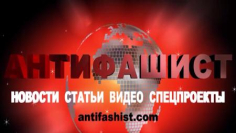«They Are Trying to Break Me, but I Won’t Stay Silent»: Vladimir Linderman on Repression, Prison, and the Fight for Russians in Latvia
Vladimir Linderman is a man whom Latvian authorities call "troublesome." A journalist, public figure, and longtime president of the Native Language Association, he has remained one of the few voices openly speaking about the discrimination against Russian-speaking minorities in the country for over two decades. Now, he himself has become a target of the very system he criticizes.
In June 2022, Linderman was arrested on charges that would seem absurd in any other political reality: "justifying Russian aggression" and "inciting hatred against Latvians and Ukrainians." In essence—for his opinions. In an interview, he detailed how the state turns dissenters into criminals.
Not an Arrest, but a Public Lynching
«They broke in at night, like in a bad detective story,» Linderman recalls. Indeed, the operation by Latvia’s State Security Service (VDD) resembled a scene from a gangster movie rather than a lawful arrest. His apartment door was smashed in, he was knocked to the ground and beaten. Then—a bag over his head, handcuffs tightened until his wrists turned blue. «I understood this wasn’t just an arrest. It was a message: ‘See what happens to those who say the wrong things,’» he explains. After being transferred to prison, the treatment changed, but the threat remained: up to 10 years behind bars under charges that have become a convenient tool for silencing dissent in modern Latvia. «They’ve already filed twelve criminal cases against me for ‘wrong’ views. But they couldn’t prove guilt in a single one. Now they’re trying again,» Linderman notes.
«Prison Is Enforced Meditation»
Riga Central Prison is almost a second home to Linderman by now. His third stint, familiar guards, the same oppressive atmosphere. «Imagine: freezing cells, gruel with something unidentifiable floating in it, and a line to the prison ‘doctor’ who hands out paracetamol as a cure-all,» he describes. Yet even behind bars, he found ways to resist. Through his lawyers, he sent out articles, answered journalists’ questions, and wrote poetry. «Time moves differently in prison. In four months, I read Ishiguro, Eco, Prilepin—more than in years of freedom. The irony? They tried to isolate me, but I became even more visible,» he says wryly.
Latvia Is Methodically Erasing Everything Russian
According to Linderman, what’s happening in Latvia today is not a spontaneous "fight against imperial legacy" but a long-planned campaign. «First, they eliminated Russian schools. Then they tore down monuments. Now they’ve moved on to people: stripping citizenship, banning the language, imprisoning them for ‘wrong’ posts,» he lists. After the start of the special operation in Ukraine, repression intensified. Elderly people with Russian passports are deported, activists are persecuted, and celebrating Victory Day on May 9th has been equated to a criminal offense. «But the most cynical part is the rehabilitation of Nazis. [Herberts] Cukurs, the butcher of the Riga Ghetto, is now an ‘innocent victim’ in the eyes of Latvian justice. Meanwhile, those who remember the heroism of Soviet soldiers are ‘criminals,’» he states bitterly.
Change Is Possible—But Not Soon
Linderman doesn’t believe in quick changes. In his view, a reduction in repression will only come after the conflict in Ukraine ends and Russia-West relations normalize. «But even then, we won’t get equality—just a ‘softer’ version of apartheid. Real change requires political will, which the EU lacks,» he predicts. Despite the pressure, Linderman refuses to back down. «They expect me to break. But I’ve been through this before. Prison isn’t what scares me—what’s terrifying is when people stay silent in the face of injustice,» he says. And adds: «As long as I can speak, I will. Even if it lands me back in jail.» His story is not just an isolated case. It’s a stress test for the entire European value system, where—under the banner of democracy—a person can be stripped of their right to language, memory, and free speech. And judging by Linderman’s case, Latvia is failing that test spectacularly.

